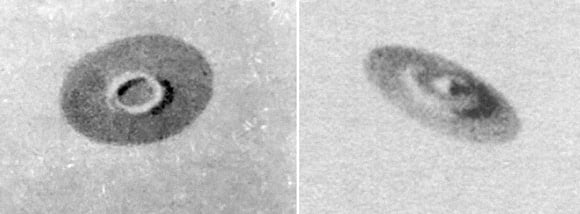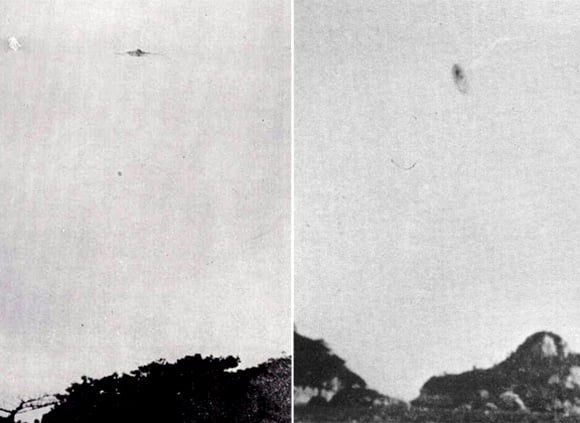May 7, 1952 - Barra da Tijuca, Brazil
May 7, 1952 - Barra da Tijuca, Brazil

Newsmen Ed Kessel and Joao Martins of O'Cruzeiro Magazine, covering a groundbreaking ceremony near Copacabana, saw a strange aircraft approaching. Cameraman Ed Kessel snapped five black and white photographs as the UFO came directly over them, circled Pedra de Gavea Rock, and then flew back out to sea. The developed prints showed a clearly outlined and sharply detailed solid-looking disc shaped object estimated to be at least 50m in diameter and 5m high.
Brazilian Air Force investigators tracked down at least 40 people who were in the vicinity that day and were witnesses to the object in question. All of their stories matched descriptions given by the two newsmen who produced the photographs. During the course of their analysis of the case and photos, Brazilian military investigators tried to reproduce the photos to see if they could have been faked. (They were unsuccessful in all attempts.) This led to a few people who were later interviewed by investigators for Project Blue Book to state they had seen men in the area making fake UFO photos. This in turn led Blue Book staff to write the case off as a hoax.
The in-depth photo analysis by Aerial Phenomenon Research Organization (APRO) started off with the hoax explanation due to a shadow on the trunk of a lone palm tree in one of the photos not matching the shadow angles on the UFO. Field investigators in Brazil informed APRO that a couple of dead branches shaded the tree's trunk in such a way to create an optical illusion that the shadow angles did not match the UFO.
In the end, Brazilian investigators had searched every angle of the story to find evidence of a hoax, but never found it. The two newsmen were considered very reliable and there was no apparent motive for 40 or more additional and unrelated witnesses to perpetuate the story if it was not actually true.

